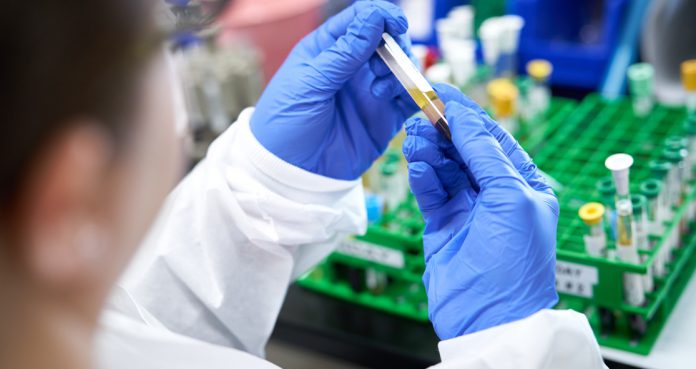A therapy that boosts the immune system to fight blood cancers has been showing promising results against solid tumors, providing a great ray of hope to treat common cancers in the future.
CAR-T therapy involves genetically modifying some of the patient’s own cells to recognize and attack cancer.
A Long Key resident Richard Carlstrand underwent CAR-T therapy more than a year ago for mesothelioma, a cancer of the lining of the lungs. He has no signs of cancer now. He said, “We were going into unknown territories and I couldn’t be happier.”
The results on his and other cases were represented Sunday at an American Association for Cancer Research meeting in Atlanta.
The first CAR-T therapy was approved in 2017 for some leukemia and lymphoma. The genetically modified immune system cells are given back to the patient through intravenous infusion, which puts the cells right where the cancer is, in the blood.
However, such an approach does not work if the genetically modified cells have to travel so far through the bloodstream to target the tumors in the colon, breast, lung, or other organs.
Dr. Prasad Adusumilli of Memorial Sloan Kettering Cancer Center in New York said, “Solid tumors are notorious for not letting the immune cells enter and not enough may make it in to have an effect.”
Dr. Adusumilli designed a new CAR-T therapy to avoid these problems and experimented it on 19 patients with mesothelioma, and two patients with breast and lung cancer, respectively, which had spread to the chest lining.
The genetically modified cells were injected directly into the tumors. At the same time, a genetic safety switch was added so that a medication could be advised to destroy the cells if they caused harm.
After the CAR-T therapy, one patient was able to undergo surgery and radiation and has been doing well 20 months later with no further therapy. Fifteen patients were prescribed a drug that boosts the immune system in a different way. Eleven patients have been studied long enough to represent the results.
Two patients had no signs of cancer for about a year, although one later relapsed. Six patients had their tumors shrink. Three patients saw their cancer aggravate. It has also been found that there were no serious side effects reported; however, some patients had fatigue and low blood counts.
Another study was conducted on a different type of CAR-T therapy in 10 adults and children with advanced sarcomas, cancers of various soft tissues and bones.
Dr. Shoba Navai of Baylor College of Medicine in Houston said, “From a single blood draw we make a large amount of the CAR-T cells and then we freeze them and give them through an IV as needed.”
Two out of the 10 patients had no signs of cancer – one for nearly three years and one for 17 months, so far. Three patients had their cancer stabilized, while five worsened in spite of the treatment. Adverse effects were similar to the previous study.
Dr. Navai said, “The therapy seems safe and we have early signs that this treatment approach may help.”
Dr. Louis Weiner, the director of the Georgetown Lombardi Comprehensive Cancer Center and one of the conference leaders, said, “These studies are showing there may be a path forward in solid tumors with CAR-T therapies, said. It may hold promise for some cancers of the stomach, breast, colon, lung and other areas.” One of the big issues with current CAR-T therapies is the cost, which could be around $400,000. Experts hope that the cost may come down in the future.





















